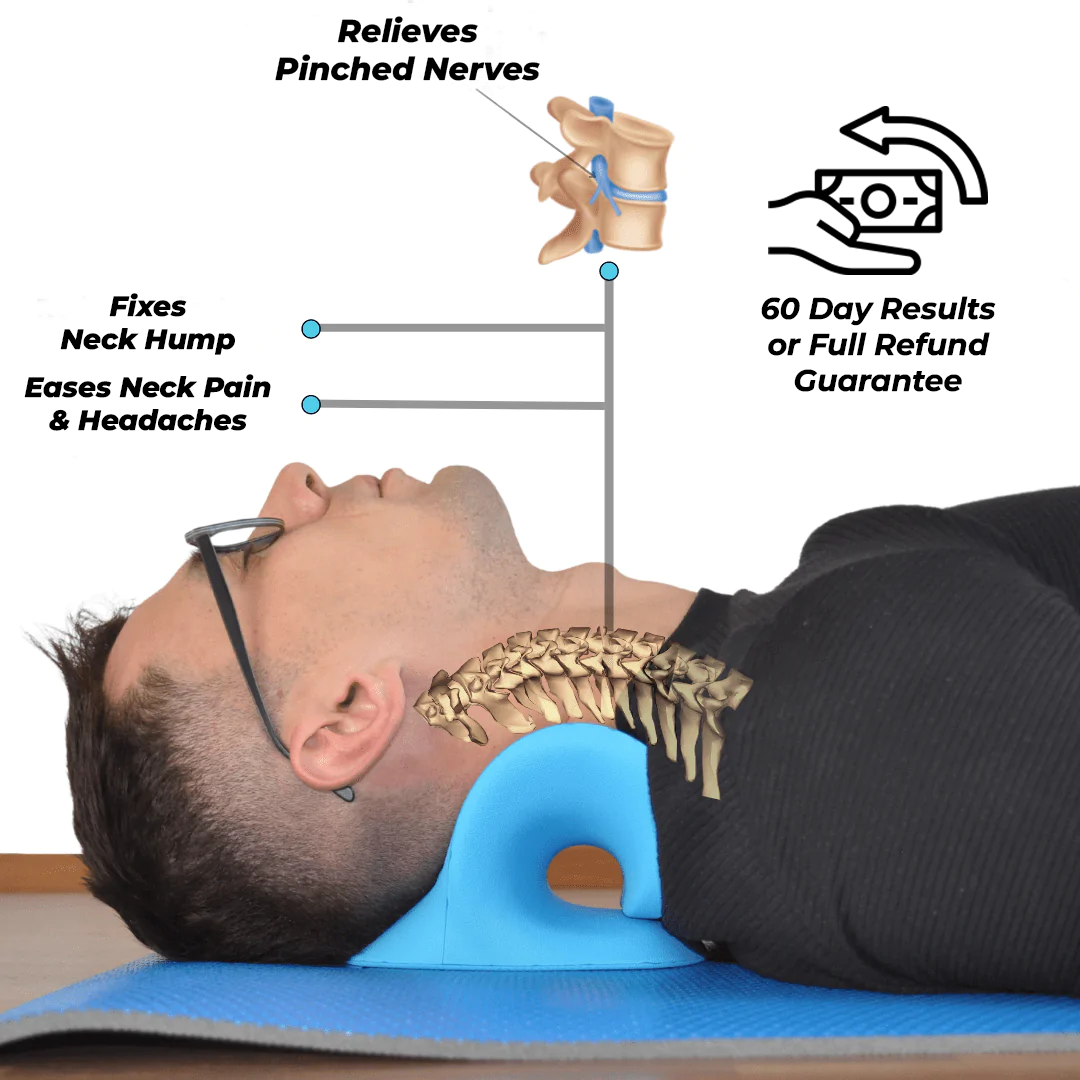Experience the Advantages of the Neck Cloud for Neck and Shoulder Alleviation
Experience the Advantages of the Neck Cloud for Neck and Shoulder Alleviation
Blog Article
The Effect of Stress on Neck Discomfort: Methods for Reducing Stress and Pain
In today's hectic globe, it's clear that anxiety has ended up being a widespread element in the start and exacerbation of neck discomfort. The intricate connection in between anxiety and muscle tension frequently leaves people seeking alleviation from the discomfort that follows. By exploring targeted methods focused on lowering tension and advertising relaxation, one can begin to address the source of neck discomfort and work towards an extra well balanced state of well-being. Join us on a journey to decipher the effect of stress on neck pain and find efficient methods to alleviate discomfort and improve general high quality of life.
Recognizing Stress-Related Neck Discomfort
Stress-related neck pain can manifest as stress, rigidity, or discomfort in the neck and shoulder area. The connection between stress and neck pain lies in the body's physiological reaction to stress, which can result in muscle mass stress and rigidity in the neck muscles.

Identifying Common Stress Areas
One usual stress location is the neck, where stress and anxiety often materializes physically. Stress headaches, tight neck muscles, and limited array of motion are typical signs and symptoms of stress-related neck stress. Being conscious of these usual tension locations can help people recognize the physical indicators of tension and take steps to address them prior to they rise into chronic pain or discomfort.
Carrying Out Relaxation Methods
To properly manage stress-related tension in the body, executing leisure techniques is important. Leisure techniques are important tools for decreasing neck discomfort triggered by stress and anxiety. Deep breathing workouts can help calm the mind and unwind stressful muscular tissues in the neck and shoulders (neck cloud). Practicing mindfulness reflection can also be helpful in relieving stress and anxiety and advertising relaxation. Dynamic muscular tissue relaxation, where you systematically strained and after that relax different muscle groups, can launch built-up stress in the neck area. Additionally, tasks like yoga exercise and tai chi incorporate both physical motion and relaxation, making them reliable techniques for minimizing stress and anxiety and neck discomfort. Taking routine breaks throughout the day to stretch and take this article a break can protect against muscle tightness and stress from building up. By including these leisure strategies right into your day-to-day routine, you can aid manage stress and anxiety levels, lower tension in the neck, and alleviate pain connected with stress-induced neck discomfort.
Incorporating Self-Care Practices
Including self-care techniques is vital for preserving total health and handling stress-related neck pain properly. Taking part in routine physical task, such as gentle stretching exercises or yoga exercise, can help relieve stress in the neck and shoulders. Exercising excellent posture throughout the day and taking constant breaks from long term resting or screen time can likewise avoid pressure on the neck muscles.
Furthermore, prioritizing appropriate sleep and developing a consistent sleep routine can contribute significantly to minimizing anxiety levels and advertising relaxation. Producing a soothing going to bed regimen, such as checking out a publication or taking a warm bath, can help prepare the mind and body for peaceful rest. In addition, keeping a well balanced diet rich in nutrients and staying moisturized can support overall wellness and decrease inflammation that may aggravate neck pain.
Including mindfulness methods, such as deep breathing workouts or reflection, can assist manage stress and advertise leisure. Taking time for oneself, engaging in pastimes, and setting borders to safeguard personal time are also important elements of self-care that can contribute to reducing tension and minimizing neck pain.
Looking For Professional Aid
Just how my blog can people properly address relentless neck pain that is impacting their everyday life and health? Seeking professional assistance can be an essential step in managing and reducing neck pain.
Chiropractic practitioners focus on spine manipulation techniques to improve alignment and lower tension in the neck location. Physiotherapists supply targeted stretches and workouts to enhance muscle mass, improve adaptability, and boost overall neck function. Orthopedic professionals can provide advanced clinical interventions such as shots or medical choices for severe situations of neck pain.
Verdict

Stress-related neck pain can show up as tension, tightness, or discomfort in the neck and shoulder area. The link in between anxiety and neck pain lies in the body's physiological response to anxiety, which can result in muscular tissue tension and rigidity in the neck muscle mass. Tension headaches, tight neck muscle mass, and restricted range of activity are common symptoms of stress-related neck tension. By integrating these leisure methods into your daily regimen, you can assist take care of anxiety degrees, reduce stress in the neck, and relieve discomfort associated with stress-induced neck pain.

Report this page